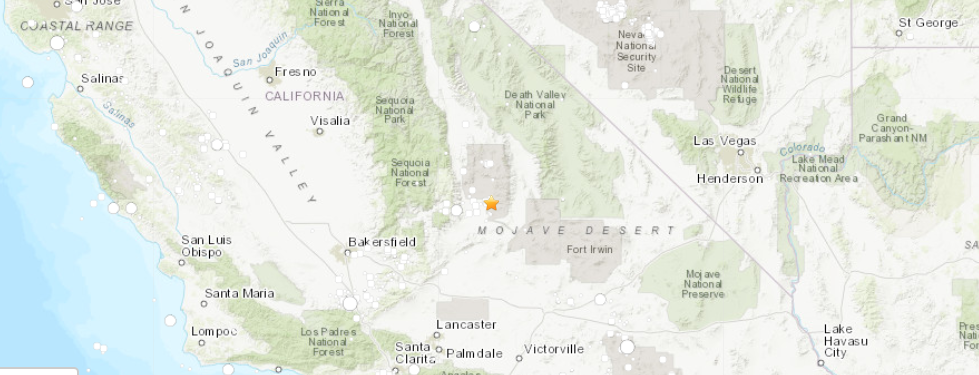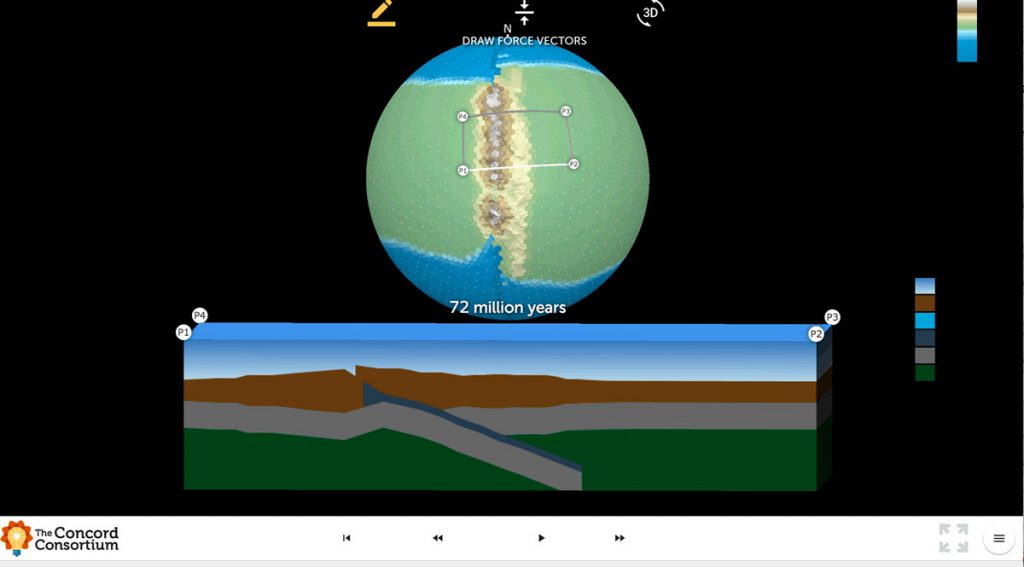Category: Tag: GEODE
Julia LaCava is a summer intern at the Concord Consortium. A junior at Ithaca College, she majors in communications. A massive 7.1 magnitude earthquake occurred July 5 in southern California near Ridgecrest, the strongest to hit the area in 20 years. The quake followed the Independence Day 6.4 magnitude earthquake the previous day north of […]
We are excited to introduce the *beta version* of Tectonic Explorer, our newest Earth system model, developed by our GEODE project. Tectonic Explorer features a complex system of interacting tectonic plates around an entire planet — in this case a simplified, Earth-like planet. For the first time in K-12 education, students will be able to […]
Earth’s landforms have been shaped over hundreds of millions of years by the movement and interaction of Earth’s tectonic plates. While geoscientists can correlate the wide variety of landforms to this movement, teaching about it poses significant challenges. It’s hard for students to reason spatially and temporally about such processes. One of the goals of […]
In his spare time, Saul Amster likes to program. He’s currently working on a project to turn a tablet into a magic mirror. Yes, like Snow White’s evil stepmother (“Mirror, mirror on the wall…”), except imagine asking the mirror for the day’s forecast or the score of last night’s game. “Programming is an interesting hobby,” […]
Earthquakes occur worldwide daily, and their aftereffects vary widely, from minimal to devastating. From California to the Mediterranean, some communities live with the threat and consequences of earthquakes and their aftershocks on a regular basis. Understanding what causes an earthquake is not easy. How is it possible to visualize monumental slabs of Earth moving? And […]
Geoscience poses many questions. Why are there continents and oceans? How do mountains form? Why do volcanoes form in some areas and not others? What causes earthquakes to be more frequent in some areas than others? Why are oil, diamond, gold, and other deposits clustered in particular areas rather than being spread evenly across the […]

